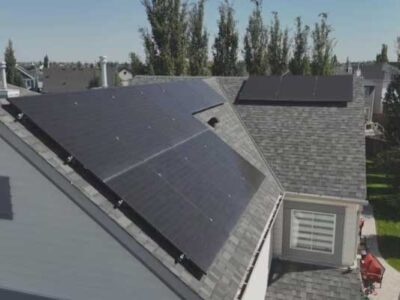Obama Seeks $12.8 Billion to Expand Clean-Energy Research
President Barack Obama wants to double U.S. investment in clean-energy research and development, to $12.8 billion by 2021, as part of a broader commitment to curb the effects of climate change.
The administration is seeking $7.7 billion in discretionary funding in fiscal 2017 to boost funding for the research at 12 federal agencies, according to a White House fact sheet released Saturday. The funding would increase by 15 percent a year through fiscal 2021. Republican leaders in Congress have already said they don’t plan to help enact Obama’s budget plan.
These 5 States Are Leading the Way in Solar Power Initiatives
Two years ago, Nevada sat among the top of the lists as one of the best states for solar energy. Some of the reasons are baked into the state: its climate and sunshine make it ideal for both large-scale and residential solar. But what set Nevada apart from its other southwestern neighbors were the state’s policies that made it easy to capitalize on their geographic advantage. These include renewable energy tax credits for residence, a rebate program and generous net metering—a policy where utilities must pay residences for the electricity they generate.
But in the last year, Nevada’s solar standing has taken a nosedive as political leaders seek to overturn and phase out net metering, one of the most successful policies driving a boom in residential solar. By reducing the rates at which solar panel owners can be reimbursed for the energy their systems generate, regulators make it harder for property owners to earn back an investment in panels. SolarCity has already cut jobs in the state in preparation for slowing demand.
Solar power and the carbon footprint dilemma: Four questions that need answering
With many people seeking ways to reduce their carbon footprint, it’s no surprise fossil fuel emissions have come under scrutiny. The life-cycle carbon output of coal, oil and gas has been studied and studied again, such that it’s generally accepted the intensity of their emissions is greater than sources of energy deemed renewable.
Oddly, while it might appear as if the use of renewable energy in practical terms has been studied thoroughly, there are enough gaps in our knowledge to leave an inquisitive mind wanting to know more. Let’s say you were an aspiring eco-warrior and wanted to use sunlight as your primary source of energy.
Adani turns to solar power as coal plans draw fire
The company behind Australia’s biggest coal project is now looking to invest in the country’s solar-power sector.
Adani Enterprises, the Indian company controlled by billionaire Gautam Adani, is focusing on solar opportunities in Queensland and South Australia, it said in a statement on Wednesday. Adani said any solar investment in Australia would come on top of its ambitions to develop the delayed Carmichael mine and rail project in Queensland.
Adani is interested in joining companies from Canada, China and Europe in developing solar projects in Australia with costs projected to halve by the end of the decade. Large-scale solar in the country is forecast to experience a 15-fold increase in capacity by 2021, according to Bloomberg New Energy Finance.













Comments